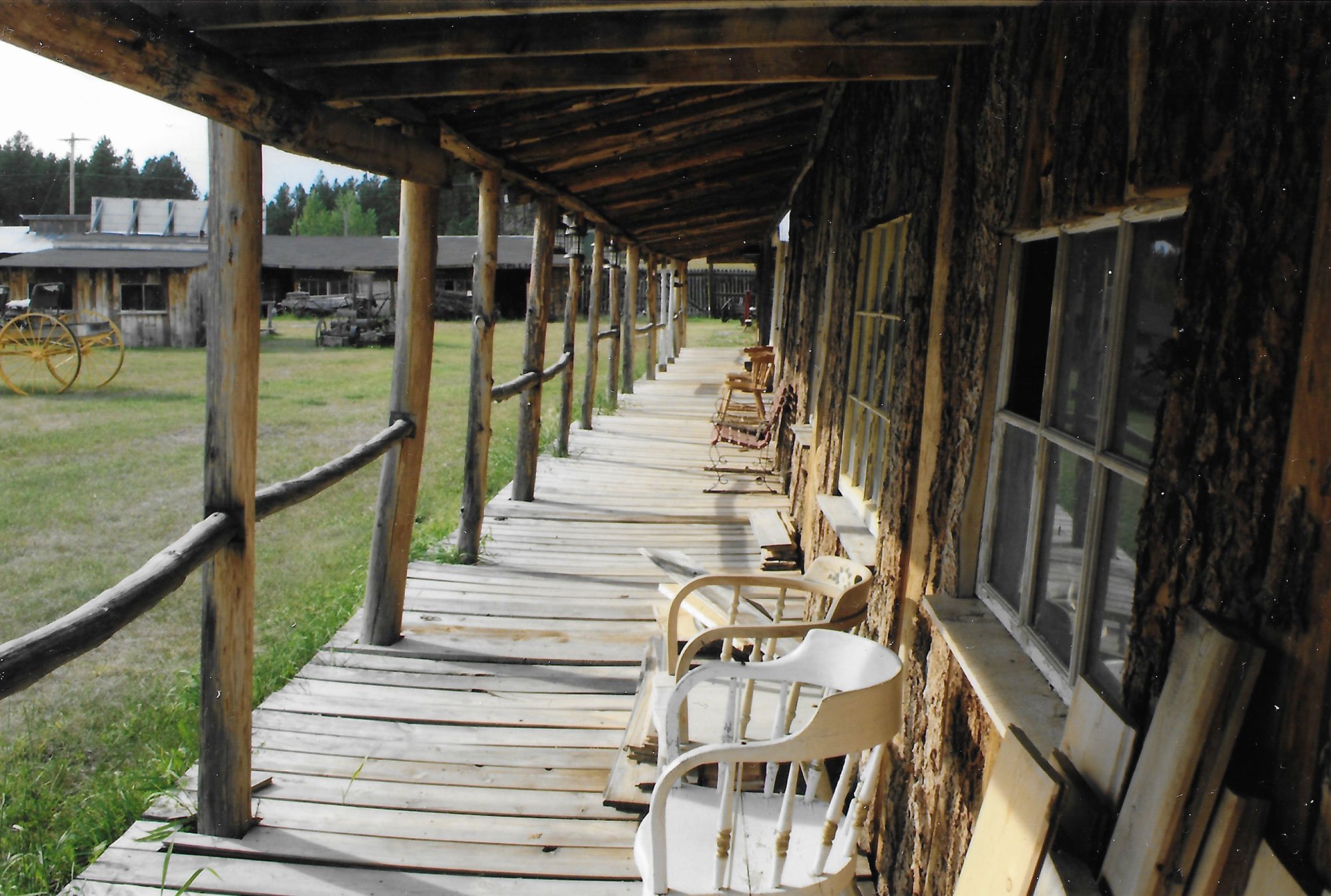
Old West Town Tour
Welcome!
The town dog has awaited your arrival. If a dog accepted strangers coming into a town the people would accept them but if the dog showed dislike for the strangers the people would shy away from them. If you are in the dog house go ahead take your picture as you begin your walk into yesterday.
Fur Trader
The fur trades were among the early settlers. They trapped and hunted for food and the furs. The beaver pelt was used for hats and coats as it shed the water. There was no medicine for pneumonia so it was most important to keep warm and dry.
Bank
Banking was conducted by a family with money. They would make loans, collect interest, and become very wealthy. If you were honest and worked hard chances are they would loan you money.
Hardware Store
The hardware store sold almost everything we needed. He had pails, shovels, chain, guns, fishing things, fencing materials, coal oil, paint and housewares for the ladies. If their chamber pot sprang a leak he sold mend-its to fix the leak or even a brand new chamber pot.
Sheriff
The sheriff or marshal was hired to keep a nice peaceful town. Sometimes he was a good guy and sometimes he was a bad guy. There is a story about gunslingers. They rolled up a $5. bill and carried it in the last chamber of their gun so if they were slow on the draw in a gunfight the undertaker got the $5. and would bury them.
School
School land was set aside in towns or communities for education of children. If you came from another country the teacher would use books written in both your native tongue and English. You would learn one line at a time and in turn teach your family at home the translations.
The book we have is in German and the first line is "Where is your new home?" You could learn the township, county, and state in just that one sentence. The books were printed in 16 or 17 languages from across the world.
Church
Church was held in saloons or large buildings before buildings were built just for services. The churches provided a social element to the communities as well as education of the bible. Many of the early settlers could not read so the ministers interpreted the messages and explained their ideas to the people.
Music Store
The Music Store was a wonderful addition to the town. Each area in the world had a form of traditional music in their area but the people enjoyed the music from all the other cultures. It is considered the universal language of the people. This store contains several instruments of music.
Doctor
Last but not least we have the office of Doctor Rex M. Quack our beloved doctor. Many of the doctors started doctoring animals and went onto caring for people. The doctor mixed medicines, many of which contained alcohol or natural plants used as drugs. A doctor was required to have a skeleton in his closet to determine how the bones in the body aligned as America stepped into 1900.
Old Tipi Burner
The old tipi burner houses our Indian display. As America spread west the great White Father in Washington made treaties with the people but the Indian agents hired by the government were not always honest, which created a lot of problems. The code talkers used their native language to translate messages during World War 2 to help win the war. The Indian people contributed a lot to the growth and development of America.
Old West Town
Adventures in an Old West Town
Experience the Old West